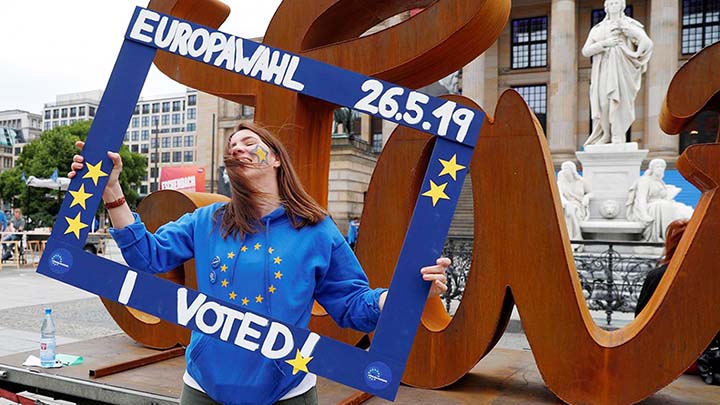
AFP, Brussels :
Europe’s mainstream political parties took a hit in elections on Sunday but held off a strong surge by the populist right of Marine Le Pen, Matteo Salvini and Nigel Farage.
In one of the world’s biggest democratic votes, the main centre-right and centre-left groups lost their combined majority in the European Parliament in the face of a challenge by eurosceptic and nationalist forces.
The symbolic clash of the campaign saw French far-right leader Le Pen’s National Rally on course to come in just ahead of President Emmanuel Macron’s centrist movement, damaging his drive for deeper European integration.
In Britain, Farage’s one-issue Brexit Party appeared to have trounced the main parties and he will send a large contingent of British eurosceptics to a parliament they want to leave in a few months.
And in Italy, Salvini’s far-right League achieved a similar result, strengthening its role at the core of a vocal populist faction in the EU’s legislature. The advance of the right was less pronounced in Germany-where a strong showing by the Greens was reflected in a “green wave” in many countries-but the anti-immigrant AfD broke the 10-percent barrier.
“We are facing a shrinking centre,” said German conservative Manfred Weber, lead candidate for the centre-right European People’s Party (EPP) to replace Jean-Claude Juncker as European Commission chief.
Turnout EU-wide was estimated at 51 percent, the highest in 20 years, suggesting more than 200 million citizens across the 28-nation bloc voted in a poll billed as a battle between populists and pro-European forces.
Across Europe, according to updated projections prepared by the parliament, the EPP is on course to have the most seats in the assembly with 179, down sharply from 216 in 2014.
With the centre-left Socialists and Democrats (S&D) projected to win 150, down from 185, the two mainstream parties will no longer have a majority and will have to reach out to liberals to maintain a “cordon sanitaire” and exclude the far-right from decision making.
The Liberals (ALDE), who include Macron’s party, are on course for 107 seats against 69 previously while the Greens are forecast to take 70 seats, up from 52.
The various populist, eurosceptic and right-wing parties won more than 150 seats, but form no coherent coalition.
The Europe of Nations and Freedom-composed mainly of the French National Rally and Salvini’s League-saw their share rise from 37 to 58 seats.

